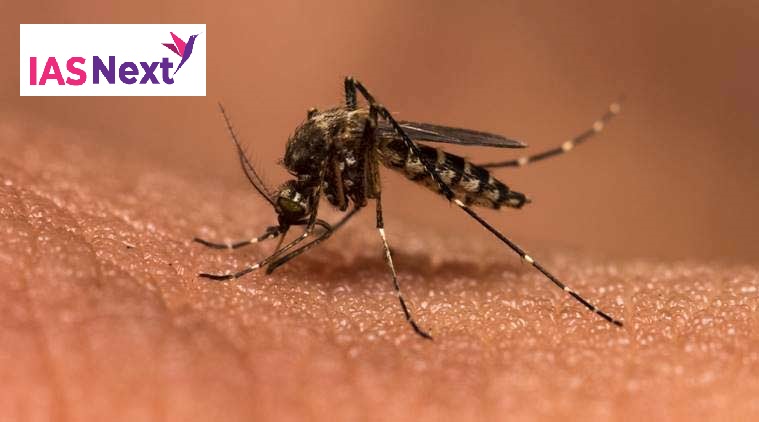CURRENT AFFAIRS
Get the most updated and recent current affair content on Padhaikaro.com
Karnataka sets 2027 target to become malaria-free
- IAS NEXT, Lucknow
- 29, Apr 2022

Reference News:- :
Karnataka has set a target to eliminate malaria by 2027, three years before the 2030 target set by the Union government.
- Karnataka has received national recognition and appreciation for its efforts to eliminate malaria in the past six years, between 2015 and 2021, as part of the National Framework for Malaria Elimination in India (NFMEI) initiative.
About Malaria:
Malaria is a life-threatening disease caused by parasites that are transmitted to people through the bites of infected female Anopheles mosquitoes.
Malaria burden across the world:
- Malaria is most endemic in Africa, with Nigeria, Congo, Tanzania, Mozambique, Niger and Burkina Faso together accounting for over half the yearly deaths.
- Even now, the disease kills over four lakh every year, according to WHO figures.
- Children aged under 5 years are the most vulnerable group affected by malaria; in 2019, they accounted for 67% (274,000) of all malaria deaths worldwide.
- In 2019, India had an estimated 5.6 million cases of malaria compared to about 20 million cases in 2020.
WHO malaria-free certification:
- WHO grants the certification when a country has demonstrated that the chain of indigenous malaria transmission by Anopheles mosquitoes has been interrupted nationwide for at least the past three consecutive years.
- A country must also demonstrate the capacity to prevent the re-establishment of transmission.
- The final decision on awarding a malaria-free certification rests with the WHO Director-General, based on a recommendation by the independent Malaria Elimination Certification Panel (MECP).
Key findings of the WHO World Malaria Report 2020:
- India has made considerable progress in reducing its malaria burden.
- India is the only highly endemic country which has reported a decline of 17.6% in 2019 as compared to 2018.
Reasons for the failure to develop a malaria vaccine so far:
- The complexity of the life-cycle of the malaria-causing parasite, a part of which is spent in the human host.
- These parasites are also able to hide inside human cells to avoid being recognised by the immune system, creating further challenges.
- Lack of funding and interest in developing a malaria vaccine.
- The vaccine manufacturers have little incentive for malaria vaccines.